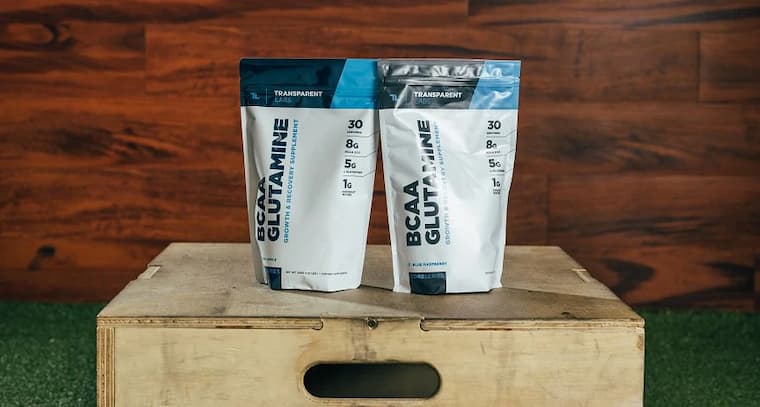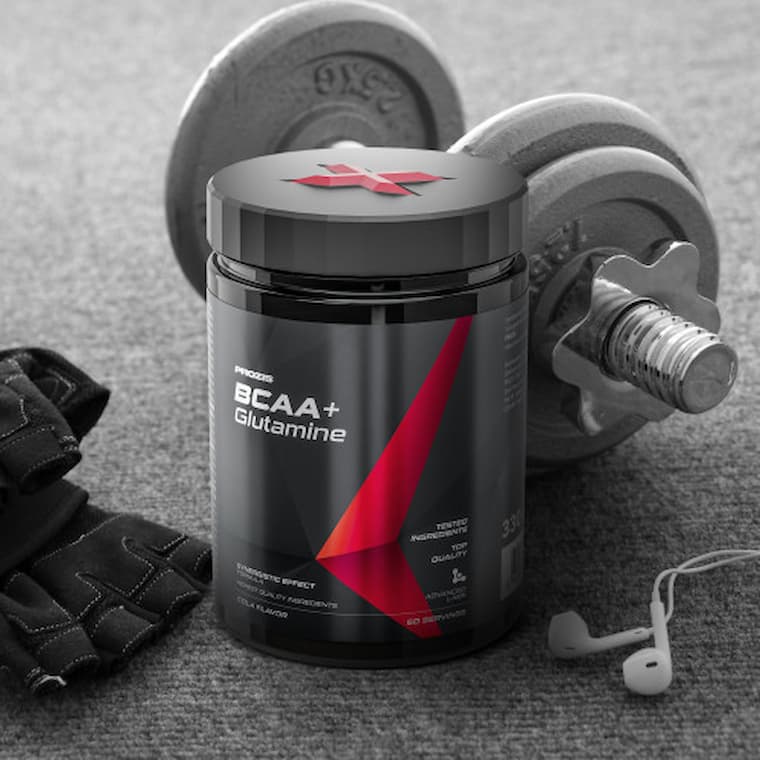Health & Beauty
The Benefits of BCAAs and Glutamine
Branched-chain amino acid supplements have been around longer than other dietary products, yet few people are aware of their full potential for muscle building and performance. These workout supplements have risen to the forefront of research studies in recent years, with the results turning heads in the bodybuilding community.
Given the many benefits of amino acids, such as their well-documented ability to build muscle, improve recovery and enhance performance, it’s no wonder that BCAA products are in high demand by athletes and bodybuilders everywhere. So why not give them a try?
What Are BCAAs Good For?

Branched-chain amino acids are made up of three essential components that our systems can’t produce on their own and must be taken in through diet or supplements. Leucine, isoleucine and valine work together to promote protein synthesis and prevent protein breakdown. This trifecta team also provides energy to muscles during exercise, reduces fatigue and aids in recovery.
Glutamine is the most abundant amino acid in our muscles and plays an important role in protein synthesis. BCAAs can help to support glutamine levels, making sure that our muscles have the resources they need to grow. Thanks to their inextricable bond, incorporating a BCAA I Glutamine supplement into your diet is a no-brainer if you’re looking to maximise your workout results.
The Use of Glutamine and BCAAs

BCAA supplements are generally used to boost muscle mass by stimulating the metabolic enzymes that aid in muscle growth. They work directly toward muscle hypertrophy due to the combination of actively accessible acids that constitute the building blocks of muscle protein and active enzymes.
Both BCAA and Glutamine promote muscular endurance and can help with muscle development and recuperation after a strenuous workout. The use of a BCAA I Glutamine supplement can help to reduce the amount of time needed for muscles to recover, as well as improve the quality of sleep.
The overall impact on muscle recovery and regeneration is determined by the timing of BCAA and Glutamine supplementation. It’s recommended to take these amino acids before and after a workout, as well as before bedtime.
BCAAs are rapidly absorbed by the body and put to work almost immediately, which is why they are often taken intra-workout. This ensures that muscles have a constant supply of amino acids to support protein synthesis and prevent muscle breakdown.
Shorter but more intense workouts tend to deplete our BCAA stores more quickly, so in these cases, it’s especially important to replenish with a high-quality supplement. Longer sessions, on the other hand, require a more gradual release of amino acids, making an intra-workout BCAA drink less ideal. In these cases, it’s best to take your supplement before or after exercise.
Differences Between Glutamine and BCAAs
Aside from the apparent chemical distinctions between glutamine and BCAAs, the true difference is based on your unique training requirements. The former is a non-essential amino acid, which means that our bodies can produce it on their own. BCAAs, on the other hand, are essential amino acids that need to be supplied through diet.
This distinction is important because it affects the rate at which each amino acid is metabolised and used by our bodies. Non-essential amino acids are somewhat slower at that game, which is why glutamine is often taken in larger doses and less frequently than BCAAs.
Another area where these two amino acids differ is in their impact on protein turnover. BCAAs are known as ‘proteinogenic’, meaning that they actively promote protein synthesis. Glutamine, on the other hand, inhibits protein breakdown. In other words, BCAAs help to build muscle while glutamine helps to preserve it.
How to Consume Glutamine and BCAAs

The most popular way to supplement with these amino acids is in powder form, which can be mixed with water or your favourite beverage. BCAA I Glutamine powder generally has a slightly sweeter taste and dissolves easily, making it a convenient way to get your amino acids without having to down a lot of pills.
The recommended dose of Glutamine powder is 5-10g per day, depending on your fitness goals. If you are training for muscle growth, it is best to take your supplement before and after exercise, as well as before bedtime. For those looking to improve endurance and recovery, taking your supplement intra-workout is ideal.
You should also consider your weight when determining your dosage. Those who weigh more will likely require a higher dose than those who weigh less. And if you regularly take part in intense workouts, you may also need a higher dose to support your training.
It’s always best to start with the lower end of the dosage scale and increase as needed. This will help your body to adjust to the supplement and reduce the risk of any side effects.
As always, it is important to consult with a healthcare professional before starting any supplement regimen, especially if you have any pre-existing medical conditions. In this way, you can be sure that BCAAs and glutamine are right for you and that you are taking the appropriate dose.
Writing for the blog since 2012, Chris simply loves the idea of providing people with useful info on business, technology, vehicles, industry, sports and travel – all subjects of his interest. Even though he sounds like quite the butch, he’d watch a chick flick occasionally if it makes the wife happy, and he’s a fan of skincare routines though you’d never have him admit that unless you compliment his impeccable skin complexion.

























